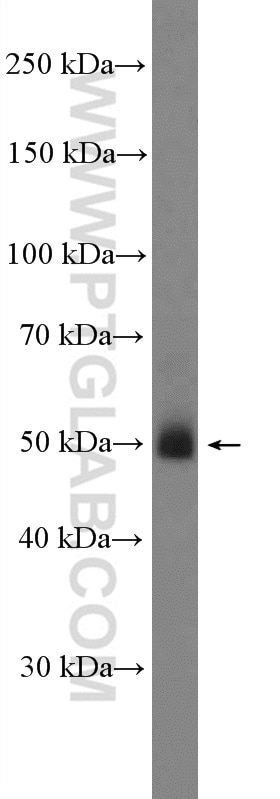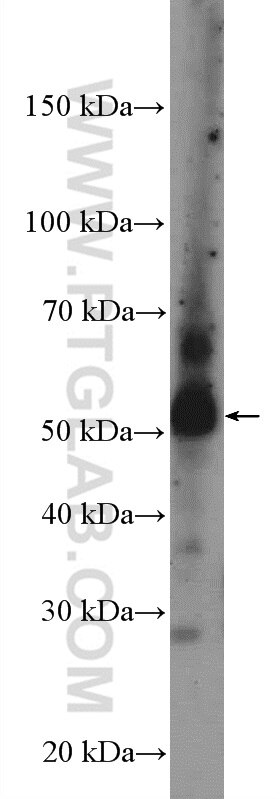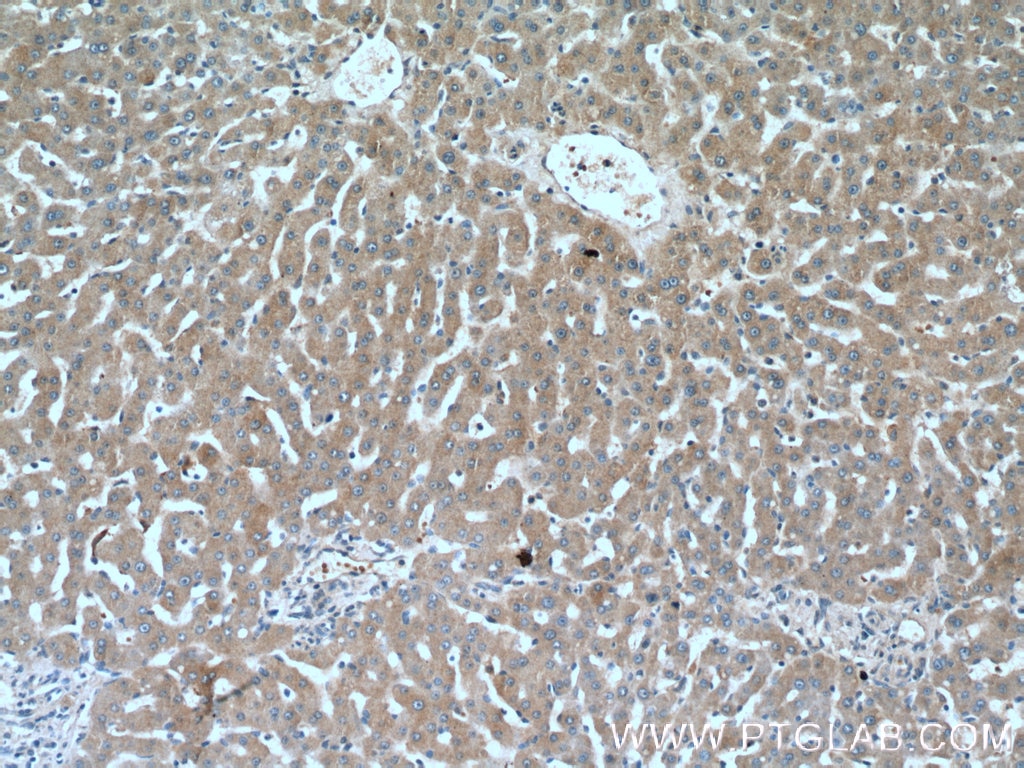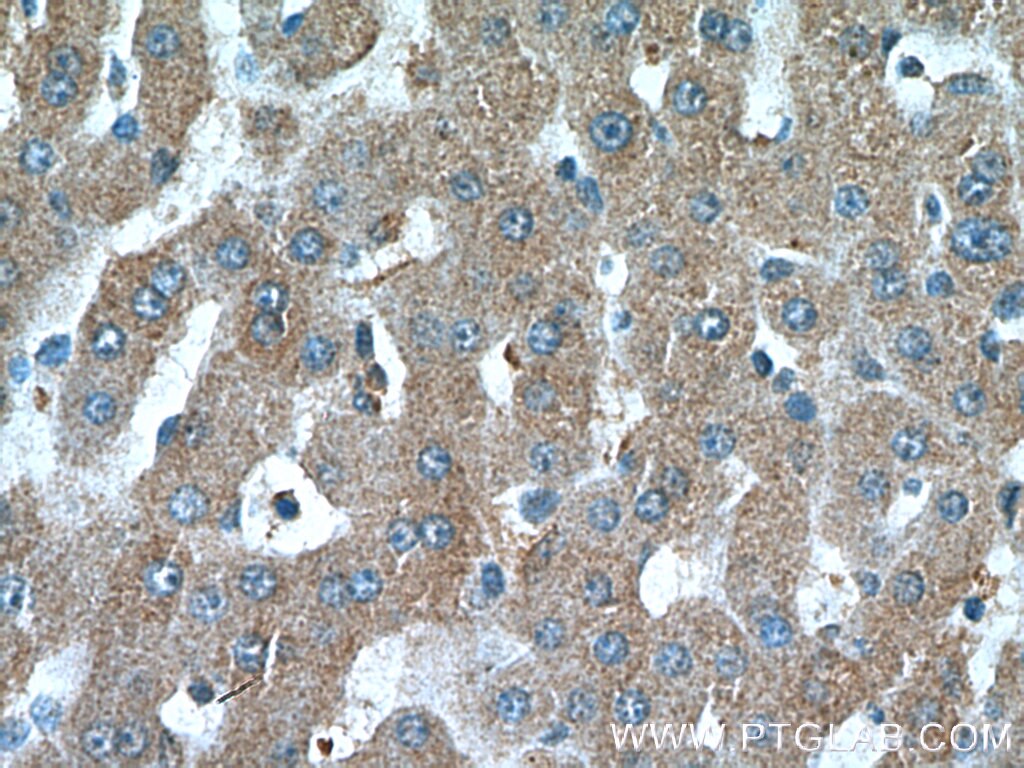Tested Applications
| Positive WB detected in | A375 cells, mouse liver tissue |
| Positive IHC detected in | human liver tissue Note: suggested antigen retrieval with TE buffer pH 9.0; (*) Alternatively, antigen retrieval may be performed with citrate buffer pH 6.0 |
Recommended dilution
| Application | Dilution |
|---|---|
| Western Blot (WB) | WB : 1:500-1:2000 |
| Immunohistochemistry (IHC) | IHC : 1:50-1:500 |
| It is recommended that this reagent should be titrated in each testing system to obtain optimal results. | |
| Sample-dependent, Check data in validation data gallery. | |
Published Applications
| WB | See 2 publications below |
Product Information
11964-1-AP targets ANGPTL3 in WB, IHC, ELISA applications and shows reactivity with human, mouse samples.
| Tested Reactivity | human, mouse |
| Cited Reactivity | human, rat |
| Host / Isotype | Rabbit / IgG |
| Class | Polyclonal |
| Type | Antibody |
| Immunogen |
CatNo: Ag2573 Product name: Recombinant human ANGPTL3 protein Source: e coli.-derived, PGEX-4T Tag: GST Domain: 241-460 aa of BC058287 Sequence: GIPAECTTIYNRGEHTSGMYAIRPSNSQVFHVYCDVISGSPWTLIQHRIDGSQNFNETWENYKYGFGRLDGEFWLGLEKIYSIVKQSNYVLRIELEDWKDNKHYIEYSFYLGNHETNYTLHLVAITGNVPNAIPENKDLVFSTWDHKAKGHFNCPEGYSGGWWWHDECGENNLNGKYNKPRAKSKPERRRGLSWKSQNGRLYSIKSTKMLIHPTDSESFE Predict reactive species |
| Full Name | angiopoietin-like 3 |
| Calculated Molecular Weight | 460 aa, 54 kDa |
| Observed Molecular Weight | 54 kDa |
| GenBank Accession Number | BC058287 |
| Gene Symbol | ANGPTL3 |
| Gene ID (NCBI) | 27329 |
| RRID | AB_874076 |
| Conjugate | Unconjugated |
| Form | Liquid |
| Purification Method | Antigen affinity purification |
| UNIPROT ID | Q9Y5C1 |
| Storage Buffer | PBS with 0.02% sodium azide and 50% glycerol, pH 7.3. |
| Storage Conditions | Store at -20°C. Stable for one year after shipment. Aliquoting is unnecessary for -20oC storage. 20ul sizes contain 0.1% BSA. |
Background Information
ANGPTL3 belongs to the angiopoietin-like protein family. ANGPTL3 is mainly synthesized by liver cells and is notably expressed in kidney podocytes. Accumulating evidences have revealed that ANGPTL3 plays a critical role in both biological processes, such as lipid metabolism, angiogenesis and haematopoietic function and pathological changes, including atherosclerosis, carcinogenesis, nephrotic syndrome, diabetes, liver diseases and so on. Thus, ANGPTL3 may serve as a potential biomarker in these diseases.
Publications
| Species | Application | Title |
|---|---|---|
Cancer Sci Screening of novel serum biomarkers for gastric cancer in coastal populations using a protein microarray |










